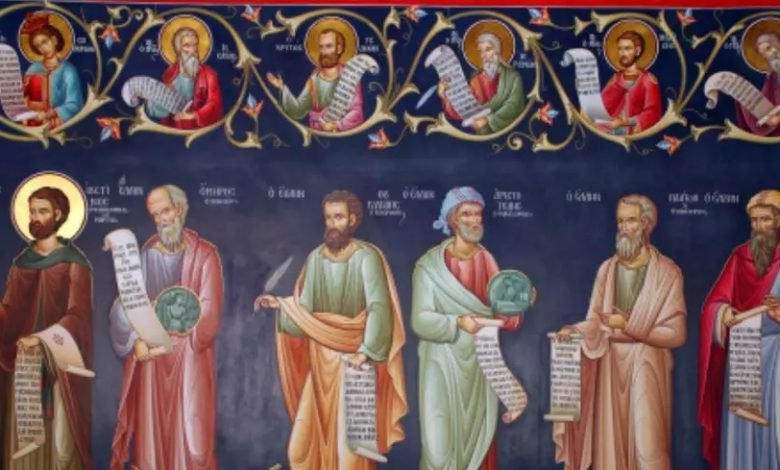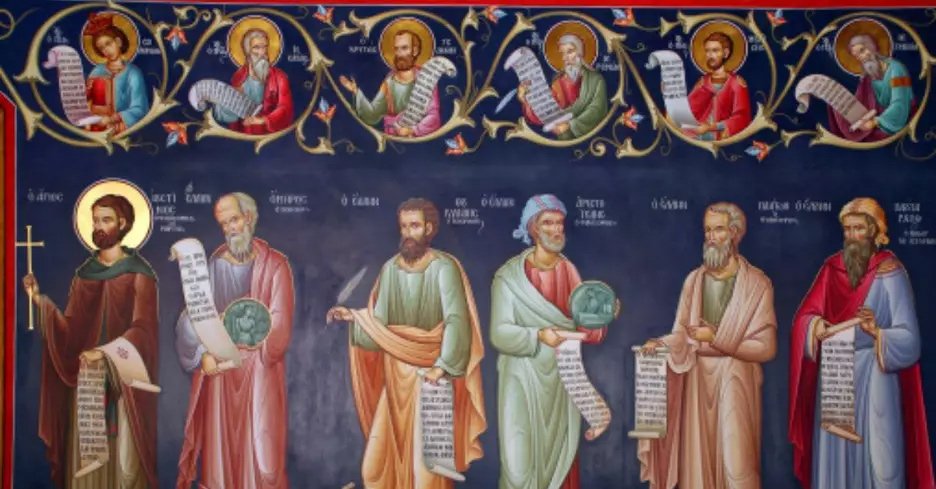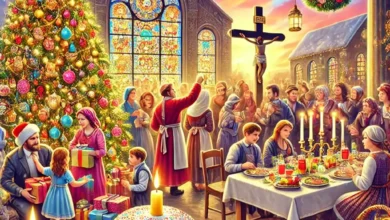
All Saints’ Day
All Saints’ Day, also known as All Saints’ Day, is a Christian holiday celebrated in the Christian West on November 1. This feast is a celebration to remember and honor all the saints of the church, both known and unknown. In other words, it is a day dedicated to the observance of all the saints who lived a righteous and holy life based on the teachings of Christianity. All Saints’ Day is part of a wider tradition that includes All Saints’ Day (Halloween) on October 31st and All Souls’ Day on November 2nd.
All Saints’ Day
All Saints’ Day is an annual reminder of our connection as Christians to the Church. You may have been taught to think of the saints as statues in the church building. But the Bible teaches something completely different. Who is a saint? you are. Of course, if you are a follower of Jesus Christ. God calls those who believe in Christ alone for salvation “holy”.
The book of Acts chapter 9 verse 13 says: “But Ananias answered, ‘Lord, I have heard about this man from many people, how much evil he has done to your saints in Jerusalem.'”
Romans chapter 8 verse 27 says: “And he who tries the hearts knows what is the mind of the spirit, because the spirit intercedes for the saints according to the will of God.”
“Behold, this is the call of the patience and tolerance of the saints, that is, those who keep the commandments of God and their faith in Jesus.” (Revelation of John chapter 14 verse 12)
The origins of the Feast of All Saints
The origins of All Saints’ Day can be traced back to the early Christian Church, when it was established as a day to commemorate and honor martyrs and other saints who died for their faith. Over time, the scope of this feast was expanded to include martyrs and all Christians with strong faith who lived a life of piety and righteousness based on Christian teachings. This Eid is a day to recognize the collective testimony of saints and express gratitude for their example.
In the early Christian Church, there was a strong emphasis on honoring the martyrs who suffered and died for their faith. These martyrs were seen as outstanding examples of Christian virtue, and their graves or burial places became places of pilgrimage and respect. The anniversary of a martyr’s death often became a day to honor his life and sacrifices for his faith.
Over time, the focus of this feast expanded beyond martyrs to all Christian saints. That is, those who were known for their holiness and exceptional piety towards God. This change showed that not all saints were martyrs, so a wider commemoration was needed.
In the Western Christian Church, Pope Gregory III (731-741) is often credited with establishing November 1st as the date of All Saints’ Feast. The date was chosen to coincide with the consecration of a chapel in St. Peter’s Basilica in Rome to “All Saints”. It was an attempt to unify the various local celebrations of saints’ days and to establish a universal date for honoring all saints.
Traditions of different sects on the Feast of All Saints
The celebration of All Saints’ Day in Christianity originates from the belief in the spiritual connection between the inhabitants of heaven and earth. While the traditions of this Eid vary around the world, the common theme is celebrating with family and remembering the departed.
In the Catholic tradition:
This Eid is in honor of all those who have gone to the kingdom of heaven.
In many historically Catholic countries, this feast is a national holiday.
Participating in Holy Communion is the most common All Saints tradition in the Catholic Church.
During the Lord’s Supper ceremony, the Purification Sermon (Jesus’ speech in the Gospel of Matthew about the Beatitudes) is read and prayers for the saints are said.
Many people visit the graves of their loved ones and relatives to pay their respects and remember the deceased who have gone to heaven.
In Latino communities, families visit the grave with a feast that includes the deceased’s favorite foods.
In Italy, bread is baked for All Saints and distributed among loved ones.
In the Methodist tradition:
The Feast of All Saints is devoted to sincere thanksgiving to God for the lives and deaths of His saints, both known and unknown.
In addition, prominent people throughout Christian history such as the Apostle Peter and Charles Wesley are mentioned, as well as people who have personally led a person to faith in Jesus Christ, such as a relative or friend.

Who are the saints?
Sainthood is not limited to those recognized by a group of religious leaders. This position is a gift that God himself grants to every ordinary and simple person who believes in Christ (1 Corinthians 1:2).
Words are important. It is not from God to cause confusion about good, scriptural words like “saint”.
(1 Corinthians 1:2) says: “To the church of God which is at Corinth, to those who are sanctified in Christ Jesus, and to all who in every place call on the name of our Lord Jesus Christ, both their Lord and our Lord They are called to be saints.
The gospel message is that the Son of God came to earth, lived a life of complete obedience, died on the cross to pay for our sins (Romans 5:1), and rose again to prove that His atoning work was complete (Romans 4:22). – 25). The Bible says that a person with faith truly becomes the righteousness of God (2 Corinthians 5:21)!
Through living faith (the way of salvation), we are united with Christ (the source of salvation) and saved from God’s judgment as well as from the futile way we naturally follow (1 Peter 3:18). In other words, we are given the status of a saint!
Do you have doubts? Think about this: If God calls the worldly, sinful believers in Corinthians “saints”—and He does so in 1 Corinthians 1:2—can’t He also call you saints? My friend, anyone who believes in Christ alone for salvation is a saint in God’s sight.
The connection of All Saints’ Day with Halloween
It might interest you to know that “Halloween” (as it is called) originally started as a holy Christian holiday. Last night, neighborhood children in the United States and other countries were happily “sacrificing” dressed as Dracula or Satan.
The word “hallow” in Old English means “holy” or “religious”. Thus, “Hallows’ Eve” or “Halloween” simply means “The Age of All Saints” and refers to the evening before All Saints’ Day, which in the Anglican and Catholic calendars is today, November 1. Halloween is a combination of Celtic religious beliefs and Christian martyrology.
How to celebrate All Saints’ Day?
So how should we think about the Feast of All Saints? The Book of Common Prayers of 1662 says that this Eid represents “the unity of Christians of all ages, countries and races in Christ and the perfection of that unity in heaven.” This book traces the origin of this feast back to around 610 AD, when the Pantheon in Rome was converted into a Christian church and dedicated to All Saints. It seems that the prayer book has a correct understanding.
The Bible does not tell us to pray to the saints (Matthew 6:6) or to pray through the saints (1 Timothy 2:5). Instead, we reflect on our connection with saints of the past and are inspired by the stories of God’s faithfulness in their lives. Hebrews chapter 11 provides many examples of the great cloud of witnesses whose lives speak of God’s endless love and grace. These saints speak of the past and whisper in our ears at this moment:
“God is faithful.”
“God is good. Trust him.”
“His grace was sufficient for me in my trials, and it is sufficient for you today.”
There is a well-known hymn called “For All Saints” that is traditionally sung on this holiday. This hymn encourages believers to look back over the years of Christian history and think of the millions who are now at peace and salvation before God. Also to encourage the believers of this time and place to continue and look forward to that glorious day:
“… when the strife is fierce, the battle long,
The song of victory is heard from afar,
And hearts become brave again and arms become strong.
Hallelujah, Hallelujah!”
Today in the article : All Saints’ Day We reviewed useful information about the Bible and the way of Jesus. If you wish, you can view other articles of Ali Vahidi about Christianity





